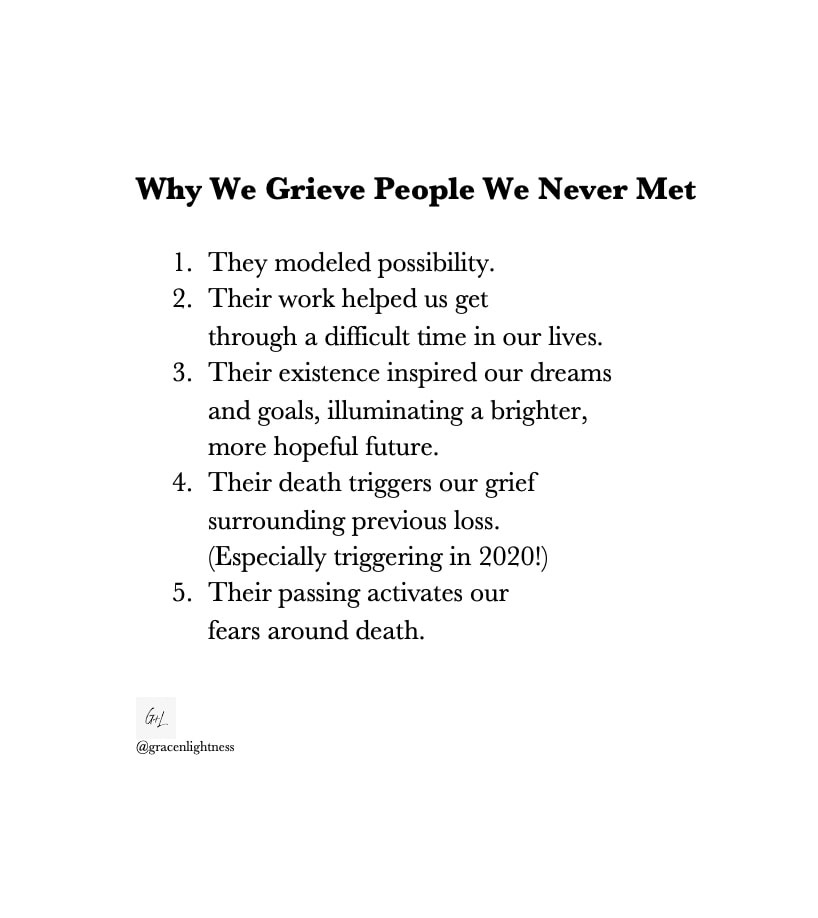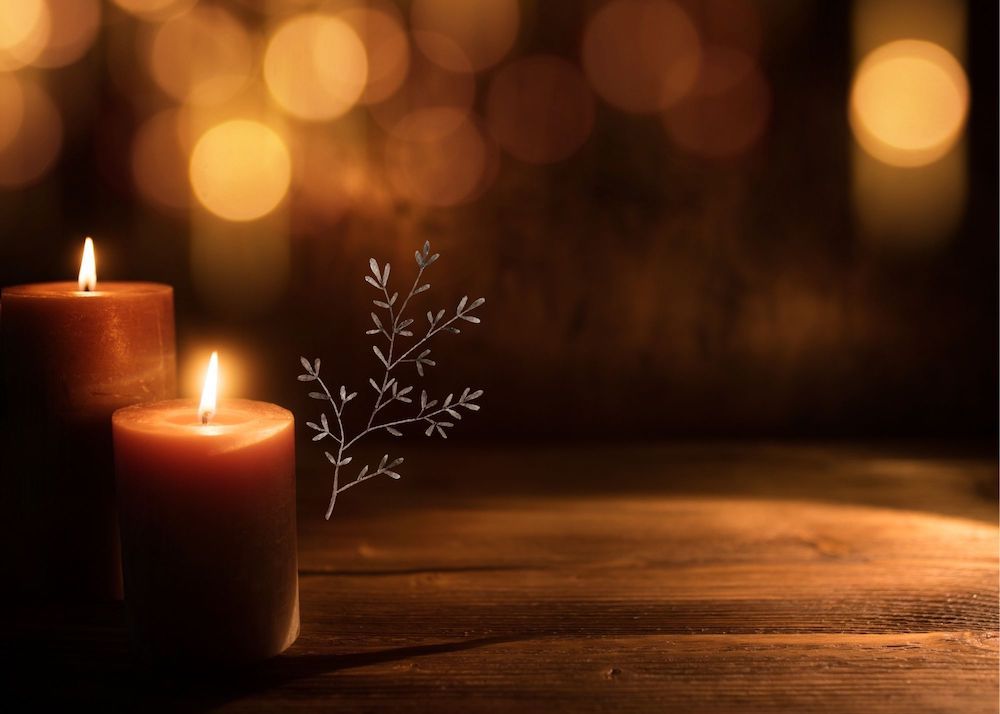The death of a beloved celebrity or public figure often brings with it intimate outpourings of grief— often from people who never met the departed. This begs interesting questions about the psychological impact of idol worship, public figures and relationships writ large, as well as our personal sense of wellbeing in the world.
In the abstract, a famous person’s passing can feel paradoxically intimate.
So, why do we grieve people we’ve never met? It depends on the circumstances of the death, and it’s different for everyone. But generally speaking, trends converge on a few different reasons are have deep roots in our mental conception of the world.
See our Instagram graphic that explains 5 basic principles, below. Then, scroll to read a more detailed explanation.

Here’s the breakdown of each:
1 – They modeled possibility.
When a public figure who inspired you dies, their legacy– at least for a moment– seems to come to a close. In the case of athletes and activities, this can feel like a loss for fans and followers, in the sense that the momentum drummed up by their movement(s) and ambition feels somehow limited by death in a way that it wasn’t in life.
With their passing, we momentarily lapse into feeling like the possibility they demonstrated is no longer possible. This is technically not a fact, but it can feel that way.
2 – Their work helped us get through a difficult time in our lives.
Inspirational figures are powerful influencers in our lives because they do just that: they inspire us. When their light dims, it’s harder for us to see.
Particularly if there’s an aspirational quality to their legacy– as with, say, a freedom fighter– it can feel personally harrowing to lose their leadership.
But, it’s important to remember that age-old adage that everyone is used to hearing but few people actually take seriously: Don’t cry because it’s over. Smile because it happened.
3 – Their existence inspired our dreams and goals, illuminating a brighter, more hopeful future.
It’s important to remember that even when someone inspires you to become a better version of yourself, it is ultimately you that has to do the doing. When we are experiencing grief, it can be easy to lose sight of this.
You may feel like you needed their example to shine a light on your own path. But remember: the path was always there, they just helped you see it more clearly. With practice, you can learn to be your own light.
4 – Their death triggers our grief surrounding previous loss.
This aspect of why we grieve people we’ve never met is a biggie. Unfortunately– and most humanely– the death of a high profile figure can trigger our grief surrounding previous loss. If an actor who your father loved dies, it may remind you of your father’s death. If someone who played a character on a TV show you used to watch at your grandma’s house dies, it may trigger memories of her death.
These are not easy feelings to navigate, but they serve a purpose. Ultimately, they help us get in touch with our own humanity and remind us that life is short.
All of us, whether we have a platform or not, ultimately end up in the same place. Life doesn’t last forever, so it’s important to live for today and make it count.
5 – Their passing activates our fears around death.
Most triggeringly– especially for the younger generation– a high profile death can activate heretofore little understood fears surrounding death itself. The final key reason why we grieve people we’ve never met has less to do with their death, per se, and more to do with fears about our own.
The older we get, the more likely we are to have experienced death in some capacity. We get older, and older family members or friends eventually die. If you live long enough, you may eventually come to accept it– but for most people, this is always going to be a subtly heartbreaking aspect of life.
Death, however much we resist it, tends to occur in spite of our preferences. For young people, though, it’s impact is extra jolting because teenagers, for example, have a built-in capacity to feel invincible. It’s hard-wired into our brains to be more existentially risk tolerant when we’re young.
When someone or something shakes this perception by exposing us to death to early, we internal it as a trauma. And like any trauma, this can impact other, seemingly unrelated parts of your life like relationships and a sense of purpose.
Fortunately, the antidote to grieving people we’ve never met is to celebrate them. Celebrate the legacy they had, thank them– in your heart, through prayer, by gratitude journaling, etc– for the impact they had on your life. This practice ultimately makes the experience more meaningful, which is ultimately what helps us heal from their loss over time.
***
Related: A Healing Way to Think About Grief— and How Citrus Aromatherapy Can Help (especially when you’re feeling stuck inside your own head).
Only Somewhat Related: How Weighted Blankets Improve Sleep, Stress, and Anxiety.

Leave a Reply